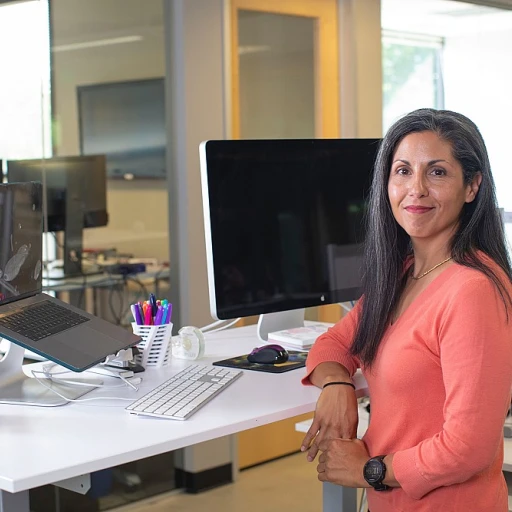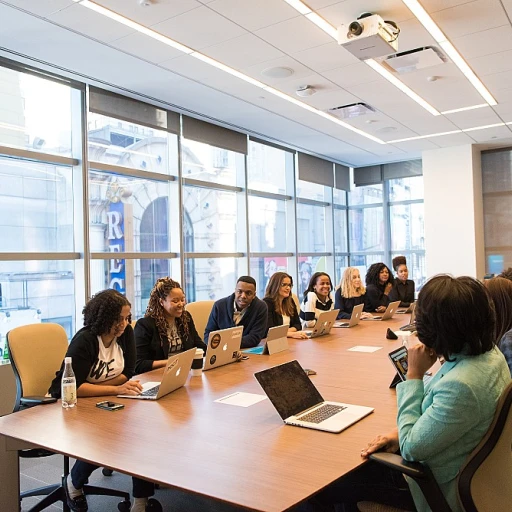
Understanding Collective Learning in Mentoring
Collective Learning: A Cornerstone of Human Progress
The concept of collective learning has been at the core of human evolution for thousands of years. Unlike other species, Homo sapiens have the unique capacity to share knowledge and ideas across generations. This ability to engage in collective learning has been pivotal in shaping human history and culture. From the early days, human beings have relied on social learning to solve problems and enhance their collective knowledge. By pooling together individual experiences, communities have been able to accelerate their learning process and improve decision-making capabilities. This phenomenon is not new; it traces back to our ancestors who shared their learning through language-based exchanges long ago. Understanding how this element of our cognitive toolkit has evolved helps us appreciate why group mentoring is such a powerful tool today. In professional settings, leveraging this natural inclination for collective learning can significantly enhance the learning culture within an organization. Over time, culture and language have served as tools to facilitate the exchange of ideas and experiences. As we delve deeper into the corporate realm, acknowledging the role of these tools in learning development becomes crucial. Just like our ancestors benefited from pooling insights, modern organizations too can reap immense benefits from collective learning strategies. Throughout our history, the power of collective learning has driven tremendous advances in knowledge and social capacity. By understanding and applying the principles of collective learning in professional mentoring, businesses can ignite innovation and foster a thriving environment where knowledge sharing is not only encouraged but celebrated.Benefits of Group Mentoring
The Impact of Learning Together
Collective learning has stood the test of time, from the days of early homo sapiens gathering around campfires to modern professional settings. Our capacity for collective problem solving and knowledge sharing has accelerated human evolution. Shared experiences and social learning have molded our species, enhancing our ability to adapt and thrive.
Pooling Knowledge for Greater Insight
The benefits of collective mentoring are multifaceted. When a group comes together, learners exchange ideas and share knowledge, leading to richer educational experiences and quicker learning. As a result, participants often find themselves on accelerated paths to mastering complex subjects.
Building a Diverse Learning Culture
Combining various perspectives can lead to innovative decision making. This collaborative approach fosters a learning culture wherein diverse team members contribute their unique views. Social tools play a vital role in facilitating such exchanges, creating a dynamic environment where learning becomes a communal journey.
Enhancing Problem Solving Capacity
By engaging in corporate learning as a group, individuals can learn from past experiences while experimenting with new solutions. This group dynamic helps in honing problem-solving skills, creating a robust environment for personal and professional growth.
To delve deeper into the nuances of collective learning, consider exploring the art of passing down wisdom. Understanding how legacy mentorship influences today’s mentoring practices can offer insightful perspectives on enhancing your professional journey.
Challenges in Implementing Collective Learning
Overcoming Barriers in Group Learning
In the realm of collective learning, especially within the professional mentoring landscape, several challenges must be surmounted to fully harness its potential. Human history has long demonstrated the power of learning groups, yet in modern settings, the implementation of these practices must be carefully managed. Throughout the years, the way people learn and share knowledge has evolved significantly, influenced by advancements in language, culture, and technology. One of the primary obstacles lies in the diverse learning needs of individuals. Every member of a group brings a unique background, learning style, and pace. This diversity, while a strength, can make it challenging to develop a cohesive learning process that benefits all participants equitably. Tailoring group sessions to address individual learning preferences without compromising on the collective experience is a delicate balance to achieve. Another challenge is maintaining group engagement over time. Human beings naturally engage more readily when they feel the learning is personalized and directly applicable to their roles. This is where the learning culture and social learning frameworks come into play, fostering an environment where participants feel empowered to share knowledge and contribute actively. Moreover, integrating technology into group mentoring sessions can also present hurdles. While Learning Management Systems (LMS) and other digital tools offer the capacity to facilitate discussion and decision-making, they require proper implementation. Ensuring that technology serves as an enabler rather than a barrier demands careful planning and the adaptation of tools that enhance the collective learning experience. Lastly, the hierarchical and corporate structures often present in professional environments can inhibit open dialogue and honest exchange of ideas. Creating a space where hierarchy is set aside is vital to cultivating a truly collaborative environment. This calls for skilled facilitators who can navigate these dynamics and focus the group’s collective wisdom towards effective problem-solving. For those looking to deepen their understanding of performance dynamics in group settings, exploring effective performance evaluation techniques for community coordinators can be particularly illuminating. Overcoming these barriers not only requires attention to human evolution and our innate ability to learn but also considers the social and technological shifts that influence how Homo sapiens share knowledge. As we continue to study and adapt these approaches, the opportunity arises to enhance our collective learning capabilities in professional mentoring.Strategies for Effective Group Mentoring
Optimizing Group Dynamics for Effective Mentoring
In the realm of professional mentoring, effectively managing group dynamics can significantly boost the learning process and overall outcomes. The power of the collective—shaped by thousands of years of human evolution—provides a robust platform for knowledge sharing and enhancement of problem-solving skills. Yet, to harness the capacity of homo sapiens and make the most of their ability for social learning, strategic approaches are imperative.
Fostering a Collaborative Environment
One of the key aspects of successful group mentoring lies in creating an environment that fosters collective learning. This involves setting a learning culture where all participants feel valued and encouraged to share knowledge openly. Establishing clear communication lines is fundamental, as it uses the innate language collective abilities our species has honed over millennia.
Leveraging Technological Tools
In this era, technological advancements play a supporting role in enhancing group mentoring efforts. Utilizing LMS and other digital platforms can significantly augment the speed and reach of mentorship programs. These tools facilitate not only the dissemination of ideas but also encourage continuous learning development, which is crucial in maintaining an engaged learning collective.
Enhancing Problem-Solving Through Diversity
Diversity within mentoring groups can be highly beneficial for advancing collective learning. Differences in culture, experience, and perspectives among participants can lead to innovative problem-solving approaches, enriching the mentoring experience. Encouraging diverse viewpoints aligns with mechanisms of social learning and can drive better decision-making outcomes.
Cultivating a Supportive Mentoring Framework
Implementing a supportive framework involves having a well-defined structure in place that can adapt over time. This structure should focus on continuous learning, open feedback loops, and adaptability, ensuring the group remains focused on collective goals. Just as in human history, evolving the mentoring process in response to participant feedback and external changes is essential for sustained success.
Case Studies of Successful Collective Learning
Real Life Examples of Successful Knowledge Sharing
In exploring how collective wisdom can be effectively harnessed in professional mentoring, examining successful case studies offers valuable insights. Historical evidence consistently emphasizes the power of collective learning in human evolution. By sharing knowledge and tools within groups, our species has demonstrated a unique capacity for social learning, propelling us forward throughout history.
One notable instance is the development of collaborative learning strategies in corporate environments. Organizations have seen significant benefits from adopting a learning-collective approach, where diverse groups come together to tackle complex problems. These teams harness the problem-solving skills and experiences of each member, resulting in innovative solutions and enhanced decision making. By promoting a learning culture, companies have noticed increased engagement and motivation among employees, leading to overall performance improvements.
The Role of Social Learning in Evolution
Throughout human history, communities have evolved by leveraging the shared experiences and wisdom of the group. Centuries ago, our ancestors utilized collective learning processes, laying the groundwork for practical advancements. Modern studies reveal that this social learning is pivotal in human evolution, allowing Homo sapiens to outpace other species over thousands of years. The human capacity for language has played a crucial role in this process, enabling us to communicate complex ideas and share knowledge efficiently.
David Christian, a renowned historian, emphasizes the importance of understanding our past as we move forward. His work highlights how the collective capacity of humans to learn and adapt has shaped the course of human history, proving that we are a species defined by our ability to adapt and share knowledge across generations.
Creating a Learning Development Strategy for the Future
Looking forward, integrating collective wisdom into corporate learning environments remains crucial. As companies navigate the complexities of modern business, establishing a strong learning development strategy is essential. By fostering a culture of sharing and collaboration, businesses can continue to benefit from the wealth of ideas and capacities present within their teams. The evolution of learning management systems (LMS) further supports this transition, offering platforms that facilitate communication and knowledge sharing across various channels.
Future Trends in Collective Learning and Mentoring
Emerging Trends in Group Wisdom for Mentoring Evolution
The landscape of professional mentoring has undergone significant transformations over the years. One of the most promising developments is the emphasis on collective learning, which taps into the innate human capacity for knowledge sharing and collaborative problem solving. As we embrace the future, it's crucial to recognize the trends that will shape group mentoring and evolve the mentoring culture.- Technological Integration: With the advancement of learning management systems (LMS) and other digital platforms, more organizations are leveraging technology to enhance the group mentoring experience. These tools facilitate seamless communication, resource sharing, and interaction among group members, regardless of geographical constraints.
- Interdisciplinary Collaboration: Encouraging collaboration across different fields can foster innovation and creativity. By bringing together diverse perspectives, group mentoring can drive the evolution of new ideas and solutions that are well-rounded and comprehensive.
- Focus on Social Learning Dynamics: Understanding the nuances of social learning is becoming increasingly important. Human beings, as a species, have thrived on collective learning for thousands of years. Recognizing how individuals learn from each other in group settings can optimize the mentoring process and enhance the overall learning development.
- Customized Group Mentoring Frameworks: Tailoring group mentoring programs to suit specific corporate learning needs is gaining traction. By addressing the unique culture and values of an organization, it is possible to cultivate a learning collective that aligns with long-term goals.
- Emphasis on Cultural Competency: Embracing diverse cultural perspectives can enrich the group mentoring experience. Knowledge sharing across cultures not only broadens participants' horizons but also fosters a more inclusive environment where all voices are heard.













